|
Singer, Songwriter, Voice
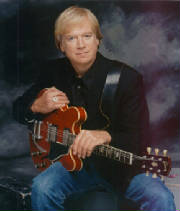
Justin Hayward, born in Swindon, Wiltshire, England on the 14th of October,
1946, is referred to by many as "the voice of the Moody Blues". His soaring, emotion-filled voice marks many a greatest
hit, including that ultimate classic "Nights in White Satin", and the more upbeat material such as "The Story
In Your Eyes", "Question", and "The Voice", and such slower, more subdued and philosophical songs as "New Horizons"
and "Watching and Waiting".
Justin has been involved in music-making since the age of 12, when he
began playing in several bands in the Swindon area. After his fifth music group, "All Things Bright", disbanded in 1964, he
left Swindon with Marty Wilde as one of his "Wilde Three". Within one year of joining the Wilde Three, Justin departed to begin a promising solo career.
Justin recorded a small number of semi-successful tracks on his own, after which
he decided it was time to return to a group. He applied for a place in Eric Burdon's "The Animals", but his application
was received too late. Fortunately, however, Eric Burdon happened to mention Justin's name to
Mike Pinder, a member of The Moody Blues, who were at that
point on the verge of disbanding, having witnessed the departure of Denny Laine and
Clint Warwick. Mike, Ray, and Graeme took in Justin immediately, along with
John Lodge, a bass guitarist who had played with Mike and Ray as a member of El Riot and the Rebels".
After several months of playing the old R & B tunes such as the Laine-era
classic "Go Now", the Moodies finally received a record contract from Decca, a division of London records' to record on the
newly formed Deram label. The Moodies recorded Days of Future Passed, to which Hayward provided the two biggest hits,
"Forever Afternoon (otherwise known as "Tuesday Afternoon"), and "Nights in White Satin" The album was an instant hit,
going to position #3 on the charts. There is a rather odd little story that revolves around the recording of Days of
Future Past and a little later on, on this website, we'll relate it in the form of a web page, so be prepared.
The Moodies recorded 6 more albums before breaking up in 1974,
Hayward providing most of the popular songs on each album. Finally, the band decided to call it quits for a while, and each
member went his own separate way. Justin's solo career, not surprisingly, was the most successful of the five.
Blue Jays, recorded by Justin and John Lodge in 1975, was undoubtedly the most successful of all of the solo albums, climbing
to the fourth position on the charts in England. The next solo album, Songwriter, also did relatively well on the charts.
Released in 1977, it marked the beginning of The Moodies transformation from a '60's psychedelic group to an '80's pop and
synthesizer-based group.
The Moodies reunited in 1978, recording Octave. Justin, remaining true
to form, contributed some ofthe most popular tracks from the album, including "Driftwood", "Top Rank Suite", and "The Day
We Meet Again".
The reunion of the Moodies did not mark the end of Hayward's solo career, however.
His next solo venture, Night Flight was released in 1980, at the height of disco fever. Not surprisingly, Justin kept with
the spirit of the times, recording such disco-laced songs as "Night Flight", "Nearer To You", and Hall and Oates' "I'm Sorry".
This marked the first Moodies album, solo or otherwise, to feature covers of songs written by other musicians.
The next Moodies release, Long Distance Voyager, is considered their "comeback"
album. Hayward wrote several of the songs on this album, including "The Voice" and "Gemini Dream" (with John Lodge). The next
album, The Present, did not do as well on the charts, but contained some equally beautiful songs penned by Hayward: "Blue
World", "Meet Me Halfway", and "Running Water".The next solo album, Moving Mountains, did not do especially well on the charts,
but it does contain some excellent compositions, including "Silverbird" and the title track. Justin's next big hit
came on the Moodies' next album, The Other Side of Life. "Your Wildest Dreams" became The Moodies' biggest hit since "Nights
In White Satin". It served to introduce a whole new generation to the Moodies, selling millions of copies in the process.
The video representation of the song received Billboard's "Video of the Year" award in 1985. Part two of the story, the video
for "I Know You're Out There Somewhere" from Sur la Mer also received various awards.
In 1990, during a lull in the band's musical output, Justin undertook
a project with Mike Batt to cover various famous rock classics in an orchestra setting. This project led to Classic Blue,
Justin's next solo release. This album contains great covers of such classics as "Stairway to Heaven", "MacArthur Park", and
Procol Harum's "A Whiter Shade of Pale".1991 saw the release of the band's next album, Keys of the Kingdom. Although it wasn't
a major hit for The Moody Blues, it contained "Say It With Love", another great Hayward tune, just one of the many songs the
Moodies performed at 1992's A Night At Red Rocks with the Colorado Symphony Orchestra. This album, along with the accompanying
video which saw a great deal of airplay on PBS stations across the country, paved the way for the Moodies' Orchestra Tour
of 1993 and 1994. This tour was highly successful, putting Justin and the others in the top ten grossing concert acts
for several months.
Justin's next musical release was a rather unexpected one, especially for
Mr. Hayward himself. A German record company, MMS Records, released an album titled FRO Classic Moody Blues Hits with Justin
Hayward and Friends. This album contained several covers of most of the Moodies greatest hits, including "Blue Guitar", a
Hayward solo release which was performed with 10cc in 1975. Justin contributed vocals to this project, but, apparently, did
not receive any payment upon its release. This creative impasse has since been resolved, we think.
Below, you'll find a brief over-view of Justin Hayward's career, up to
the point that he joined The Moody Blues.
|
 |
|
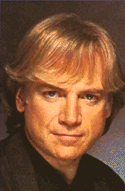
a four pager on the
Vintage Rock Website
his official website
a delightful fan site
with a testimonial
from Justin Hayward
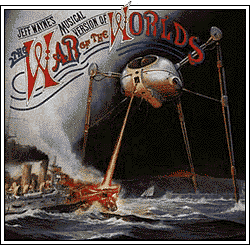
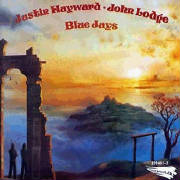
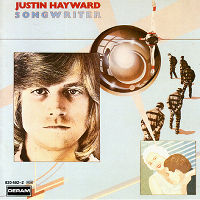
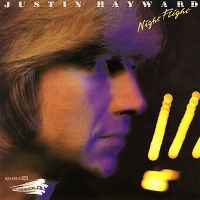
![Classic Blue [with Mike Batt] 1989](sitebuildercontent/sitebuilderpictures/classicblue_album.jpg)



|
 |
|
|
 |
|
|
|

